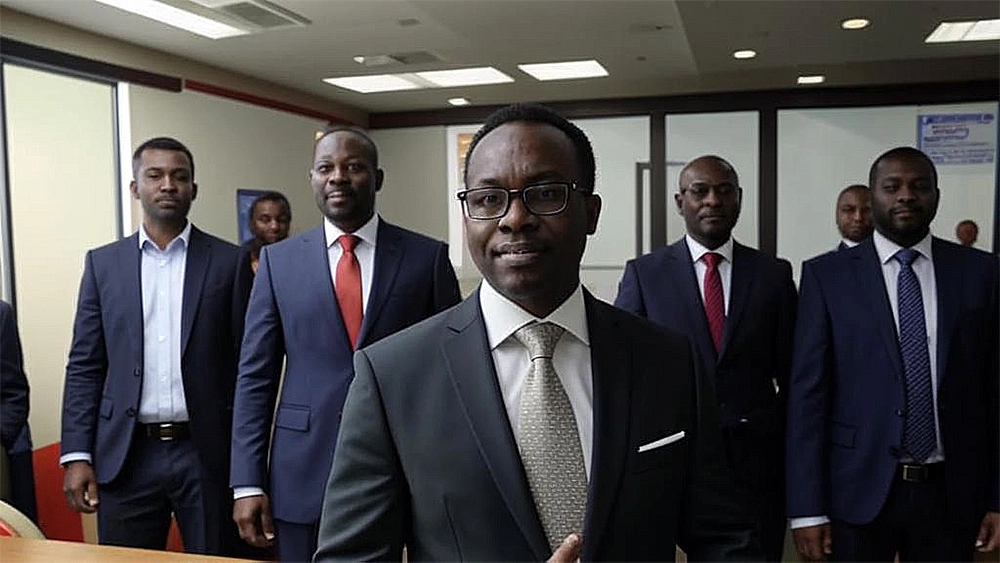Business culture of the DR Congo
 Table of contents
Table of contents
In the Democratic Republic of Congo (DRC), rich cultural diversity is reflected in business etiquette. Understanding the nuances of business culture is critical to effectively collaborating and doing business in this country.

Greetings
The Congolese are generally open and polite in both personal and business relationships. A popular greeting is to shake hands with the right hand, this helps to show respect for social status, people hold their right hand with their left when shaking hands.
Generally, when a man greets a woman, it is better to wait for the woman to extend her hand. Young people wait for older people to extend their hands. An important part of the greeting is to inquire about the health and well-being of the other person's family.
Protocol remains important in business meetings and in dealings with government officials. Politeness and European traditions of social etiquette apply. Do not use names until you have been introduced. "Monsieur", "Madame", and "Mademoiselle" are the usual forms of address. Senior government officials should be addressed with the appropriate formal title (e.g. Your Excellency or Mr. Minister).
French is the language of business in the DRC. Almost all meetings will be conducted in French. When scheduling meetings, allow extra time and resources to secure dates and times. Be prepared for delays or cancellations at short notice, especially for meetings with government officials, with the length of the delay increasing proportionate to the importance of the official's post. Confirm the meeting a day in advance.
Requests for meetings with government officials should be made as a formal written request.
Lunches are usually two hours long, with dinners starting at eight or nine.
Eye contact is often indirect during conversation, with women looking down or away to show respect. This is also the best way to avoid questions about someone's ethnicity or references to the civil war. Good topics of conversation include: sports, food, fashion, tourism, and nature in the country.
Business cards are presented without any formal ritual.
Dress Code
Business attire is appropriate for business meetings with the private sector or government officials, and is recommended for most dinners unless the invitation specifies a dress code.
Negotiation Practices
In the Democratic Republic of the Congo (DRC), business negotiations are influenced by a unique combination of cultural norms and strategic approaches. Understanding these practices is critical to ensuring successful agreements.
Congolese negotiations focus on relationships, prioritizing building trust and rapport before delving into details. This emphasis comes from the cultural concept of “Ubuntu” interconnectedness and humanity.
- Establishing Rapport: time is spent getting to know the other party, creating a sense of mutual respect and understanding.
- Patience is the Key to Success: negotiation sessions can be lengthy and involve back-and-forth and informal discussions before formal negotiations begin.
While relationship building is paramount, Congolese negotiators also employ strategic tactics.
- Indirect Communication: important points can be conveyed indirectly, using proverbs or stories to convey the message without being too pushy.
- Focus on Consensus: the goal is to reach a win-win solution that benefits all parties. Negotiation involves the process of exchanging ideas to reach a mutually acceptable outcome.
Several cultural norms influence negotiating practices in the DRC:
- Seniority Matters: Senior members often have significant influence in negotiations. Respecting their position and involving them in decision-making is critical.
- Gift Giving:Giving gifts may be common practice, but it should be done thoughtfully and transparently to avoid any perception of bribery.
Understanding these cultural norms allows foreign companies to negotiate more effectively. Demonstrating respect for hierarchy and avoiding overly aggressive tactics builds trust and increases the likelihood of a successful negotiation outcome.
Understanding Hierarchical Structures
In the Democratic Republic of the Congo (DRC), companies tend to favor hierarchical structures. This deeply ingrained system is reflected in decision making, team dynamics and leadership styles, thereby influencing overall performance.
Congolese businesses often have a tall organizational structure, with power and authority concentrated in the hands of senior management.
Important decisions are made at the top, with limited input from lower-level employees. This can lead to slow decision-making processes.
Tasks and responsibilities are closely controlled by superiors, with minimal delegation of authority to lower levels of the hierarchy.
This preference for centralized control is consistent with the Congolese cultural emphasis on respect for elders and authority figures.
Holidays
The Democratic Republic of the Congo (DRC) has a rich cultural calendar marked by national holidays and regional celebrations that can significantly impact business operations. On such days, businesses, government offices, and banks are partially or completely closed.
- New Year's Day - January 1
- Martyrs' Day - 4 January
- Heroes' Day (Laurent Kabila) - 16 January
- Heroes' Day (Patrice Lumumba) - 17 January
- Labour Day - 1 May
- Liberation Day - 17 May
- Independence Day - 30 June
- Parents' Day - 1 August
- Christmas - 25 December
In addition to national holidays, regional and religious holidays can also impact business activity in different regions of the country. Examples include:
- Local Saints' Days: Catholicism has a strong presence in the DRC. Businesses may close or operate on reduced hours on local holy days specific to each region.
- Traditional Festivals: Different ethnic groups celebrate unique festivals throughout the year. This may result in local business closures, especially in rural areas.
Respect for these regional traditions can help develop positive business relationships in local communities.



 Other topics:
Other topics:
 REAB Services
REAB Services

 News
News
 Useful tip
Useful tip

